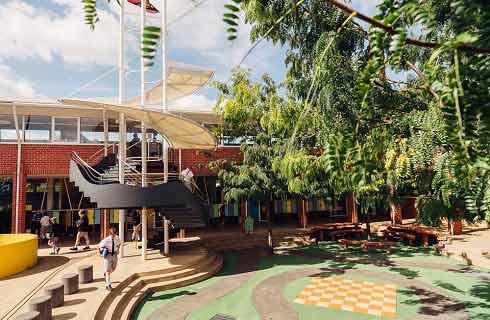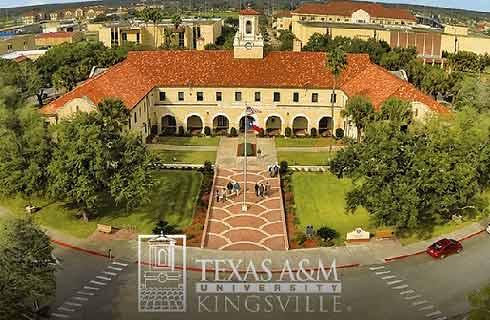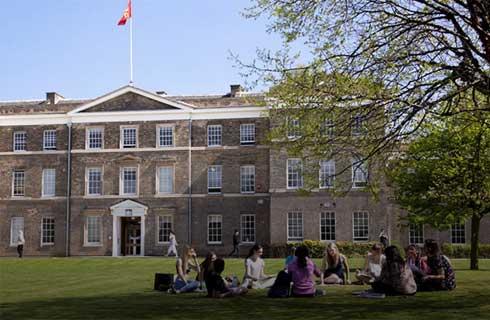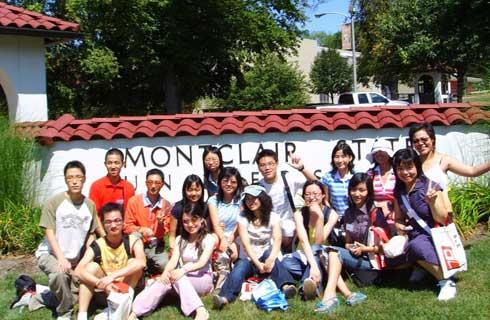硕士(斯堪的纳维亚研究与英语)
MA (Hons) Scandinavian Studies and English Language

学历文凭
Bachelor Degree

专业院系
School of Literatures, Languages and Cultures

开学时间

课程时长

课程学费

国际学生入学条件
IDP—雅思考试联合主办方

雅思考试总分
- 雅思总分:
- 托福网考总分:
- 托福笔试总分:
- 其他语言考试:
CRICOS代码: QR36
申请截止日期: 请与IDP联系 以获取详细信息。
课程简介
The languages and linguistics of the Scandinavian countries have long had a considerable impact beyond the Nordic region.This flexible joint honours programme gives you the opportunity to learn Danish, Norwegian or Swedish while exploring how the English language has changed over time.Combining the linguistic and cultural study of languages demonstrates that you are a good communicator, a resilient problem solver, and someone open to other cultures and new ideas.Most of our graduates started as complete beginners in the Scandinavian languages, leaving with the blend of broad cultural education and specialist knowledge valued by employers worldwide.Scandinavian languages and cultures are increasingly popular. The region's television, film and literature attract global critical acclaim, and the socio-economic concept of the Nordic Model is widely studied.On our programme, you have the opportunity to develop advanced spoken and written language skills in modern Danish, Norwegian or Swedish while exploring Scandinavian culture, past and present.You do not currently need to know a Scandinavian language. By Year 3, you will have the skills to spend the year abroad in Denmark, Norway or Sweden.While you will specialise in one Scandinavian language over the course of your four years, you will also gain an understanding of the other two we teach to degree level. In Year 2, for example, you can choose to study the similarities and differences between Danish, Swedish and Norwegian.The English language has a well-recorded history of more than 1,000 years, and its changes can be traced through written materials ranging from medieval manuscripts to text messages, and more recently, through recordings of spoken English.Your studies will develop your knowledge and understanding of:the principles of theoretical linguisticsthe way we learn languagethe regional and social variations of language, particularly the English languagemethods of communicationAs part of the programme, you can opt to study the Scots language, which has its own rich linguistic and literary tradition.English Language courses of particular interest to students of Scandinavian Studies cover:the speech sounds of the world's languagesvariation in the languages of the world
相关申请
 预科
预科 奖学金
奖学金 实习机会
实习机会 在校学习
在校学习 跨境学习
跨境学习 校园授课-线上开始
校园授课-线上开始 在线/远程学习
在线/远程学习
开学时间&学费
学费信息仅供参考,请与IDP联系以获取详细信息
| 开学时间 | 时长 | 学费 | 地点 |
|---|
学校排名

世界排名29
数据源:
泰晤士高等教育世界大学排名
关于爱丁堡大学

爱丁堡大学(The University of Edinburgh),简称爱大,苏格兰之王,全球20强顶尖名校。位于英国苏格兰首府爱丁堡市,创建于1583年,是英语国家中第六古老的大学。《苏格兰启蒙运动》与《苏格兰大学发展研究》提到爱丁堡大学在18世纪曾超越牛津和剑桥而成为引领欧洲学术发展的第一大学。本杰明·富兰克林曾盛赞:“爱丁堡大学拥有许多真正的伟人和从事各种知识研究的教授,这在以往的任何时代、任何国家都从未有过。”爱丁堡大学产生过21名诺贝尔奖获得者、3位英国首相、4位总统和2位总理,并为罗素集团(The Russell Group)、科英布拉集团(The Coimbra Group)及欧洲研究型大学联盟(LERU)成员。达尔文、大卫·休谟、亚当·斯密、麦克斯韦、亚当·弗格森等诸多名家均曾在爱丁堡学习或从事研究。由于其悠久的历史、庞大的规模、卓越的教学质量与科研水平,爱丁堡大学在2015/16年QS世界大学排名中位居全球第21位;在2015/16年泰晤士高等教育世界大学排名中位居全球第24位,声誉排名全球第29位;在2015年维基百科世界大学影响力排名中位居全球第16位;2015/16 ARWU世界学术排名全球第47位。在英国官方每7年发布一次的2014REF英国大学研究排名中,高居全英第4位,仅次于牛津大学、伦敦大学学院和剑桥大学,是英国的超级精英大学。爱丁堡大学有一套严格的录取选拔机制,是英国大学中入学竞争最激烈、申请难度最高的大学之一,录取率仅为8%-10%左右。爱丁堡大学是英国最具规模的院校之一,以其出色而多样化的教学与研究而享誉世界。
本校相关课程

理学硕士-强度和调理
学历文凭
Masters Degree (Taught)
开学日期
课程费用总额


PgDip强度和调理
学历文凭
Graduate Diploma
开学日期
课程费用总额


PGDE-教育专业研究生文凭(小学)
学历文凭
Graduate Diploma
开学日期
课程费用总额


理学硕士-表现心理学
学历文凭
Masters Degree (Taught)
开学日期
课程费用总额


理学硕士-户外环境与可持续发展教育
学历文凭
Masters Degree (Taught)
开学日期
课程费用总额


理学硕士-户外教育
学历文凭
Masters Degree (Taught)
开学日期
课程费用总额

其他相关课程

法语和数学(荣誉)文学士学位
 斯特灵大学
斯特灵大学泰晤士高等教育世界大学排名:594
学历文凭
Bachelor Degree with Honours
开学日期
课程费用总额


文学硕士(荣誉学位)意大利语和波斯语
 圣安德鲁斯大学
圣安德鲁斯大学泰晤士高等教育世界大学排名:162
学历文凭
Bachelor Degree
开学日期
课程费用总额


硕士(荣誉)德语/意大利语
 格拉斯哥大学
格拉斯哥大学泰晤士高等教育世界大学排名:84
学历文凭
Bachelor Degree
开学日期
课程费用总额


文学硕士-法语
 奥克兰大学
奥克兰大学学历文凭
Masters Degree (Research)
开学日期
课程费用总额


法语学士(荣誉)学士学位
 华威大学
华威大学泰晤士高等教育世界大学排名:123
学历文凭
Bachelor Degree
开学日期
课程费用总额


商务英语强化课程(伦敦校区)
 Stafford House International
Stafford House International学历文凭
English Language
开学日期
课程费用总额










